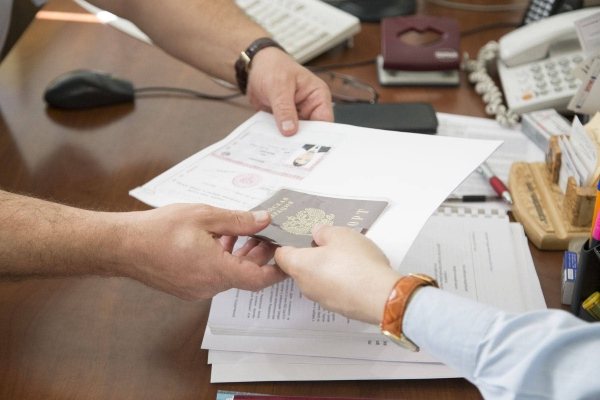The procedure for temporary registration in mortgaged apartments can be considered a legal option. Borrowers have the right to unhindered registration in this housing for their immediate relatives. The law includes parents, children and spouses among them. Permanent registration is possible only with the consent of the creditors. In this case, after completion of this procedure, banking organizations are required to be notified. All conditions relating to registration are reflected in mortgage lending agreements. In order to prevent conflict situations, you should thoroughly study the documents before signing them.
Legislative framework for registration in mortgaged apartments
Borrowers and their statuses are reflected in Article 29 of Federal Law No. 102 “On Mortgage”; obtaining rights to own and dispose of residential premises is reflected in Article 209 of the Civil Code of the Russian Federation.
Borrowers who have entered into a mortgage loan agreement have the rights to:
- home ownership;
- use of housing at your own discretion;
- disposal of housing.
According to pledge agreements, owners cannot fully dispose of housing. In this regard, registration of third parties is not allowed. The main rules in accordance with which you can use and dispose of mortgaged apartments are contained in Article 346 of the Civil Code of the Russian Federation.
The conditions that must be observed when applying for registration are contained in the Decree of the Government of the Russian Federation No. 713 of July 17, 1995.
Borrowers' rights when using mortgaged apartments
Temporary registration in mortgaged apartments can only be carried out if the standards reflected in the Civil Code of the Russian Federation are observed. This law states that homeowners can freely:
- live in residential premises alone or with people who are their closest relatives;
- receive income from the rental of residential premises (exceptions are cases where prohibitions on such actions are reflected in collateral agreements);
- register their immediate relatives in the residential premises independently or with prior notification of credit institutions (depending on the content of the mortgage agreements).
Banks should be notified according to a certain procedure. It has a very simplified design. You just need to fill out special applications that are available on the official websites of banks on the Internet.
Banks may impose restrictions on the rights of owners of real estate. However, they should not affect registration. Borrowers can register in the apartments themselves and register in them other persons who are considered their closest relatives. These include: spouses, parents and children.
It will not be possible to register third parties at these addresses if this is noted in the banking restrictions. Until the dwellings are encumbered, the registration procedure cannot be completed. Registration is permitted with the consent of credit institutions. It must be received in writing.
To register relatives, you must prepare the required documentation and loan agreements. They are sent to passport offices. If children are born during the validity of the agreements, their registration is carried out automatically.
The main condition for the registration procedure is the consent of the homeowners. The laws do not provide for restrictions on the number of persons registered in apartments.
Who can I register?
There is an opinion that no one besides the owner can be registered in the IC, and such a right appears only after the mortgage has been fully repaid. This is a wrong belief!
Registration in IC is possible:
- Children. The borrower has the right to register his minor children, because according to the law, they are registered where his parents live. Even a newborn child is subject to registration. It is enough to submit documents to the passport office, which include an application (look for a sample on the information board in the passport office of your city), a passport of the person for whom the mortgage is issued, and a child’s birth certificate. You will also need a document confirming ownership (according to Federal Law No. 218 - now this is an extract from the Unified State Register of Real Estate).
- Relatives. Regulatory documents do not contain prohibitions on registering close family members - spouse, parents. Often banks require that the legal husband/wife be a co-borrower (if there is no prenuptial agreement between them).
- Other citizens. To register a person who is not included in the previously described categories, you need to obtain permission from the lender.
Interesting article: Is it possible to register in SNT in 2020?

It turns out that the borrower has the right to register anyone he wants - from relatives to strangers (in legal language they are called “third parties”).
In particular, the agreement often states a rule according to which the owner is obliged to notify the creditor about registration, awaiting permission for further actions. Although this restriction is contrary to law.
Procedure for temporary registration in mortgaged apartments
It is possible to register the owners of residential premises and their immediate relatives in housing that is considered a mortgage. Children, spouses and parents are allowed to register under such conditions. This requirement is noted in loan agreements. They receive rights to own residential premises and to use property.
Passport office employees will carefully study loan agreements. They check for the presence of two positions in them. The first is an indication of the possibility of registration and residence of borrowers in residential premises. The second is the consent received from banks to register the specified persons at certain addresses.
Any restrictions that may be placed on the premises should be reflected in the agreements. Often, banking organizations require the preparation of receipts containing the consent of the owners to remove minor children from apartments in the event of arrears on mortgage loans. This measure allows banks to freely and timely sell housing on markets and receive cash rewards.
If children were born during the validity of the loan agreements, then they can be registered automatically on the basis of the law. Many banking organizations introduce their own clauses into contracts that may limit the registration of persons who are immediate relatives in housing. But such provisions, even if reflected in writing, will conflict with federal legislation and the norms of housing acts.
The registration procedure is carried out in several stages:
- First, borrowers visit banking organizations. They must establish the possibility of registration of any people in residential premises.
- After receiving consent, the necessary documentation is sent to the Federal Migration Service. It is very important to prepare complete documentation packages in accordance with legal requirements.
- To begin the procedure for considering applications, it will be necessary to submit applications. They are written according to the established form No. 6. This period is stipulated by administrative regulations.
- Registration is completed within 3 working days. The countdown starts from the moment the complete packages of documentation are submitted to the Federal Migration Service.
Is it possible to register in an apartment with a mortgage?
Is it possible to register in a mortgaged apartment? On this issue, the legislator does not establish any restrictions for citizens, except for those determined by the mortgage agreement itself, that is, you can register in an apartment with a mortgage. In addition, registration in a mortgaged apartment can be carried out if the registered persons are: a child, several children, spouses and parents who are recognized as close relatives; it is also possible to register third parties. When an apartment is mortgaged, be sure to remember that there are a number of encumbrances on the property due to the specific status of the housing after purchasing it with a mortgage.
The registration authority always requires the consent of the bank in order to register relatives and third parties in the mortgaged apartment. However, in cases where children, parents and spouses need to be registered, this permission will not be required.
Regulatory restrictions and features
There is a widespread belief among borrowers that registration in a mortgaged apartment is possible only after full repayment of the loan. However, the regulatory framework does not limit the owner’s rights to permanent registration, since ownership of the property does not arise at the time of repayment of the debt, but at the time of state registration of the purchase and sale agreement and amendments to the Unified State Register of Real Estate. In this case, the owner has the right to dispose of the object at his own discretion. An exception is the alienation of any type of mortgaged property.
Restrictions on registration can be imposed by mortgage holders by adding clauses to the loan agreement. In this way, banks strive to minimize their risks when foreclosure on collateral (in the case of repossession of real estate, the presence of registered persons, especially minors, significantly complicates the procedure). For example, Sberbank and VTB allow registration of immediate relatives without restrictions and additional notifications from the bank. According to the agreement, the bank may require the borrower to:
- coordinate the registration of third parties (sometimes close relatives are not included among such persons) and obtain written confirmation from the bank;
- notify the bank about the registration of third parties (prior approval is not required).
In case of failure to fulfill any of the clauses of the agreement, the creditor may:
- demand full repayment of the loan;
- impose penalties;
- increase the contract rate.
- coordinate the registration of third parties (sometimes close relatives are not included among such persons) and obtain written confirmation from the bank;
- notify the bank about the registration of third parties (prior approval is not required).
Procedure for registration in a mortgaged apartment of third parties
It does not matter in which bank the loan was issued; registration of third parties always occurs in the following order:
- The borrower draws up a written application in free form about the intention to register a specific citizen in the apartment. In this case, you need to indicate the degree of relationship with him. In some modern banks you can do this electronically on the bank’s website.
- In most cases, it takes no more than a week to process the application.
- If the bank agrees, then you should contact the passport office to apply for registration.
- The borrower draws up a written application in free form about the intention to register a specific citizen in the apartment. In this case, you need to indicate the degree of relationship with him. In some modern banks you can do this electronically on the bank’s website.
- In most cases, it takes no more than a week to process the application.
- If the bank agrees, then you should contact the passport office to apply for registration.
Where to start, where to turn?
How to register for an apartment with a mortgage? Registration must begin with obtaining bank approval. If such approval is not received, then no further actions will bring the desired result. It is better to start collecting documents only after receiving such consent .
Where do you register? The responsible authority for obtaining registration is the Main Directorate for Migration Issues of the Ministry of Internal Affairs of the Russian Federation .
What happens if you violate the mortgage agreement ? If the terms of the contract are violated, the borrower may not only lose this right and deprive everyone registered of this right, but also lose previously spent money and real estate.
List of documents
In order to register in an apartment purchased with a mortgage, you need to contact the passport office or MFC branch with a package of documents:
- passport of a citizen of the Russian Federation;
- military ID (for those liable for military service);
- marriage certificate (for married people);
- birth certificate of a minor child;
- confirmation of ownership;
- permission from the creditor bank.
The procedure in 2020 is carried out in several stages. First, you need to visit the passport office or MFC branch with a package of documents. The client must also fill out application form No. 6 according to the sample. Registration takes place within three working days. However, there are some nuances:
- if a citizen de-registered before arriving at a new place of residence, he provides the passport officer with a departure sheet;
- when registering and deregistering at the same time, a tear-off coupon is filled out;
- if a distant relative is registered, you must first obtain permission from the creditor and provide it to the passport officer;
- The presence of the apartment owner is required if a third party is registered.
Is it necessary to notify banks about the registration of people in mortgaged apartments?
Some borrowers forget to inform banking organizations about the facts of people's registration. Often they simply hide such information. In such cases, one should focus on the standards that are available in the regulations of registering organizations.
In cases where it is mandatory to provide banking consents, registration will be denied to citizens. This is stated in internal documents. If these items are missing, registration is possible.
It must be remembered that penalties may be applied for violations of loan agreements. Contracts may be terminated prematurely. Borrowers in such cases will need to repay all loan amounts over short periods of time. They will also be forced to leave their residential premises to sell them if there are no debts. In such cases, citizens' credit histories will be severely damaged. Mortgage loans will no longer be issued to such careless clients.
It is very important to coordinate any actions in advance with credit institutions. This must be done before the loan agreements are signed. In these cases, conflicts with banks can be avoided.
Possible conflicts between credit institutions and borrowers
Registration in apartments that are taken on a mortgage is not a violation from the standpoint of general federal legislation. Lenders who do not allow such options may provoke disputes between banks and borrowers.
Borrowers with registration refusals issued by credit institutions in writing may appeal to the courts. If there is no desire to use such drastic measures, it is necessary to carefully study loan agreements in advance.
In cases where the contracts contain conditions that are unacceptable for borrowers, it is necessary to change banking organizations. If you have existing loan agreements, you must comply with all the rules and clauses that are specified in them. Then it will be possible to eliminate conflicts with banks. In this regard, if there is a clause on notifying banks in case of registration, it should be strictly observed.
Resolving disputes in the courts will be costly and time-consuming. It is better to refuse to register relatives until the mortgage loans are fully repaid. Then conflicts with banks will not happen.
Theoretically, registration in mortgaged apartments is possible. But in practice, owners face various difficulties regarding it.
Nuances of registration in IC
Despite the broad rights of the borrower, banks seek to insure themselves against risks, and therefore impose various restrictions on registration in collateralized real estate. In this way, the lender takes care of his funds lent to the client.
Are there any restrictions?
Banks on their own develop and implement provisions affecting the subject of registration in the investment account.
What are the conditions for obtaining registration:
- Guarantee agreement. Banks do not resist the borrower’s desire to register immediate family members. But they can impose a condition on the parent’s registration in the mortgaged apartment and require him to enter into a guarantee agreement with him. Basically, this practice is observed in cases where the question of a parent’s registration arose after signing the mortgage agreement.
- Obligation to discharge children. The agreement may contain a clause that obliges the borrower, in case of failure to fulfill obligations under loan obligations and the seizure of the investment account, to voluntarily discharge children under 18 years of age from it.
- Obtain bank permission. Lenders often specify restrictions in the contract for non-close relatives. The bank may “think” for a long time whether to give permission for registration or not, and may even refuse it, although this is a controversial point from a legal standpoint.
- Early repayment. If the borrower ignores the terms of the agreement (including the rules for registration in the investment account), the bank has the right to initiate early termination of the credit relationship. The borrower may be required to urgently repay the mortgage.
Conflict is the most undesirable scenario in a case involving a bank loan, mortgage or collateral. Every effort should be made to resolve the conflict without bringing the matter to trial.
Do I need to notify the bank?
The agreement between the bank and the borrower establishes the rules that the borrower must follow in his actions.
Options:
- No notification is sent to the bank. The borrower registers a person without warning the bank. But there is a problem - if the mortgage agreement stipulates mandatory notification to the bank, regardless of anything, then when the bank becomes aware of such an action, it will have a reason to hold the borrower accountable for violating the agreement.
- The bank is notified. The borrower contacts a bank branch, fills out a special form on the bank’s official website (if such a function is supported) or sends a notification letter by regular mail. There is no need to wait for permission; it is enough to receive a message that the letter has reached the addressee and has been added to the file. This does not apply to permission, it is only about notification.
- Waiting for permission. Many banks require borrowers to request permission to register. Otherwise, there is a risk of termination of the contract.
Interesting article: Registration of relationships in the registry office without registration: step-by-step instructions

How to avoid disputes?
The main secret to avoiding disputes with banks is to carefully study documents before signing them.
What is your registration?
Registration at the place of residenceRegistration at the place of stay
How to prevent misunderstandings and conflicts:
- Read the contract. If you, as a future borrower, find a clause that does not suit you, you should not sign the agreement. Look for a lender who is more responsive to the issue of registration.
- Ask questions. In these times of technology, it is possible to get advice without leaving your home. It is recommended that you ask questions before signing a mortgage agreement. The borrower is not required to know any concepts and terms of the banking industry. It is the bank employee's job to explain what and how.
- Follow the terms and conditions. If you sign a contract without reading it or understanding what is written in it, you must abide by its terms. Otherwise, the second party to the agreement has the right to start legal proceedings against you.
Any conflict can be resolved amicably. Remember that scolding and threats do not solve the situation, but only aggravate it.
When can I register?
The start of the registration procedure depends on the points included in the contract, and taking into account the relationship of the registered persons.
When does registration take place:
- The borrower (who is also the owner of the investment company). He can register immediately after receiving documents confirming his ownership from the bank.
- Other persons. If the contract does not stipulate additional conditions, the owner can register anyone in the IC immediately after receiving his own registration. If such conditions exist, the owner will be able to register other persons only with the consent of the bank.










